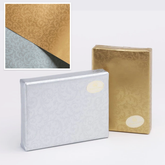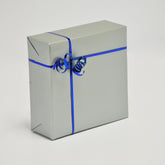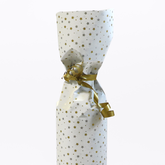The Best Plastic Packaging Alternatives For Your Business

The days of single use, non-recyclable plastic packaging are numbered, but where does that leave ecommerce providers who are accustomed to cheap and durable foils? Thankfully, there are plenty of options on the table, as well as some exciting new developments in packaging substrates. This quick-read guide offers a glimpse into the green packaging revolution for 2022 and beyond.
Cardboard
Fully compostable, lightweight, and reusable, cardboard is an increasingly popular packaging choice. Boasting a sustainability profile that includes 100% recyclability and biodegradability, cardboard production can be achieved with 60% fewer CO2 and greenhouse emissions than plastic alternatives. A unique selling point of cardboard is its eco-friendly look, helping businesses to effortlessly integrate sustainability into their branding.
Stainless Steel
Although not an option for all businesses, stainless steel can be a great alternative for plastics, especially in the food and drink industry, where it can replace single use plastic cups, etc. With single-use packaging being rapidly phased out, stainless steel is making waves in the packaging world. By law, steel packaging is made from recycled materials, and can itself be recycled endlessly without quality deterioration, leading to extensive energy savings. Industries that are adopting it enjoy a host of benefits, including its non-toxic barrier to UV light, solvent resistance, and oxygen-proof seals.
As a substrate, stainless steel is adaptable and trustworthy, and most consumers will happily recycle it (facilities allowing). As such, lightweight steel packaging offers intriguing possibilities to innovative ecommerce businesses – and will certainly stand out from most other retail packaging.
Bioplastics
Whilst a lot of bioplastics aren’t fully compostable, they are a better option than plastics, as they are made from natural materials rather than petroleum, a harmful component of plastic. With a dizzying array of biodegradable plastics available, it can be easy to overlook bioplastics. Traditional plastics such as Polyethylene Terephthalate (PET) are made from petroleum, a fossil fuel. Bioplastics are produced from a range of sustainable sources such as vegetable fat and corn starch. Increasingly, bioplastics are being manufactured from food waste, helping to reduce their water demand. As bioplastics look and feel like PET, with similar durability, companies that opt for bioplastics benefit from being able to make the switch with minimal fanfare.
Paper
Although it doesn’t sound strong enough to provide excellent packaging, paper is a surprisingly resilient and versatile option. One of the lightest solutions, paper packaging is particularly praised for saving fuel, helping organisations reduce their emissions. Consumers can reuse paper, and, once discarded, it biodegrades in a matter of months, putting its hydrocarbons safely back into the soil. Paper has been successfully used in a wide range of industries, including food and drink, as demonstrated by popular brands such as Charlie Bingham’s.
Hemp
In terms of its sustainability, hemp may be ahead of popular options such as cardboard. Hemp plants produce a substance with similar properties to wood, but growth is faster and requires significantly less water. Hemp is now being used in a wide range of sustainable packaging solutions, including as a replacement for traditional polyurethane (PU) and polystyrene (PS) foam noodles, one of the biggest sustainability headaches that ecommerce faces.
Mushrooms
True sustainability requires a bio-solution that has a net zero carbon footprint, demands few finite resources such as water, and can be produced without the requirement for energy. The resulting packaging needs to be strong, yet lightweight, long-lasting, yet fully biodegradable. As such, scientists and industry insiders are increasingly celebrating mushrooms as the ultimate answer to sustainable packaging. Although not yet widely available, finance is being channelled into this exciting option, and big names such as IKEA have already made the switch.
What next?
At Kudos Giftwrap, we are committed to supporting companies as they explore sustainable packaging solutions. To learn more about the green revolution and how your business can benefit, please get in touch today.
Image Source: Unsplash






